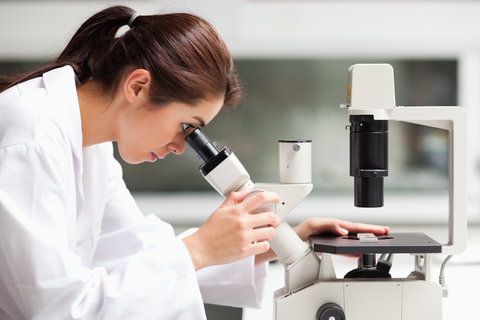Scientists join forces to battle the world’s biggest killers

Scientists at the University of Birmingham, University of Nottingham and Brazil’s National Center for Research in Energy and Materials (CNPEM) have joined forces to develop the next generation of drugs to tackle two of the planet’s biggest killers, cardiovascular disease and cancer.
As part of the Brazil-UK Year of Science and Innovation, the Brazilian Embassy in London hosted the signing of an agreement between CNPEM, in Campinas, and the Centre of Membrane Proteins and Receptors (COMPARE). The agreement provides a research laboratory and support in CNPEM to host visitors from COMPARE.
The University of Birmingham reports the agreement will enable COMPARE to access very specialist equipment dedicated to the study of membrane proteins, as well as providing access to a library of natural products that is only available in Brazil. The specialist equipment includes Sirius, one of the first fourth generation synchrotron light sources in the world and two cyro-electron microscopes. The 2017 Nobel Prize in Chemistry was awarded for the development of cyro-electron microscopy. The advanced equipment will be used to understand how drugs bind to their targets in the body called receptors and to identify ways to development better drugs that target these proteins.
Speaking after the signing ceremony, Brazilian Ambassador to the UK, Eduardo dos Santos, said “I am certain that the Brazil-UK Joint Year for Science and Innovation will strengthen the ties among Brazilian and British research institutions. Today’s event is an opportunity to celebrate this partnership and it paves the way for similar forms of producing knowledge and promoting innovation in both countries.”
The COMPARE collaboration was launched two years ago with an initial investment of £10m, uniting a team of more than twenty leading researchers from the University of Birmingham and the University of Nottingham to work with the pharmaceutical industry to take treatments from bench to bedside.
Professor Robin Mason, Pro-Vice-Chancellor (International) at the University of Birmingham, said “This partnership further strengthens research links between the world-class Universities of Birmingham and Nottingham, and a world-class Brazilian institution. It gives our scientists amazing opportunities to accelerate their efforts to tackle two of the greatest health challenges facing our world. This evolution of the COMPARE project demonstrates the power of leading research institutions working together to tackle global issues such as cardiovascular disease and cancer. I am confident we will achieve ever more remarkable things as we work with our partners in Brazil.”
Professor Stephen Hill, Professor of Molecular Pharmacology in the School of Life Sciences at the University of Nottingham and Professor Steve Watson, British Heart Foundation Professor in Cardiovascular Sciences and Cellular Pharmacology in the Institute of Cardiovascular Sciences at the University of Birmingham co-direct the COMPARE centre.
Steve Watson said “We are looking forward to working with our colleagues in Brazil to push the boundaries of what our partnership can achieve – ultimately delivering new medicines that will help push back the advance of cardiovascular disease and cancer. CNPEM’s expertise and world-class facilities will add a vital new dimension to an already successful partnership, allowing us create research opportunities that will deliver potentially life-saving benefits for patients around the globe.”
At its core, COMPARE harnesses cutting edge developments in powerful imaging techniques that will enable the researchers to visualise what happens when a drug binds to a cell surface receptor or protein in real time.
Stephen Hill said “This new partnership between COMPARE and CNPEM significantly extends our existing and highly successful collaboration in drug discovery between the Schools of Life Sciences and Pharmacy in Nottingham and the National Laboratory of Biosciences (LNBio), a component of CNPEM, that has been funded by CAPES and the British Council over the last few years. The opportunity for us to now directly access the Sirius light source, the world-class facilities and colleagues at CNPEM and to access the unique natural product libraries they have developed in a truly collaborative manner is an extremely exciting prospect for us all in COMPARE.”
Professor Kleber Franchini, Director of the Brazilian National Biosciences Laboratory at CNPEM, said “Our contribution therefore aims to do much more than just reveal the mechanisms underlying complex biological processes: we hope this initiative will foster a radical shift in our ability to find and plan novel and efficient strategies to treat conditions such as cancer and cardiovascular diseases.”
Conventional light microscopes can allow scientists to look at structures that are within a distance of five thousandth of a millimetre apart, which is insufficient for studying the location of individual proteins. Super resolution microscopy, which was recognised with a Nobel Prize in Chemistry in 2014 and which forms one of the technological backbones of COMPARE, offers the ability to visualise single proteins interacting with each other.








